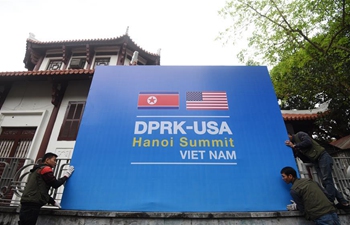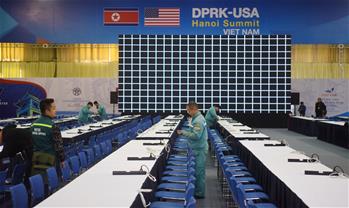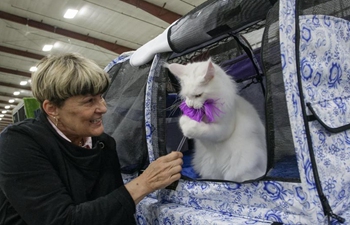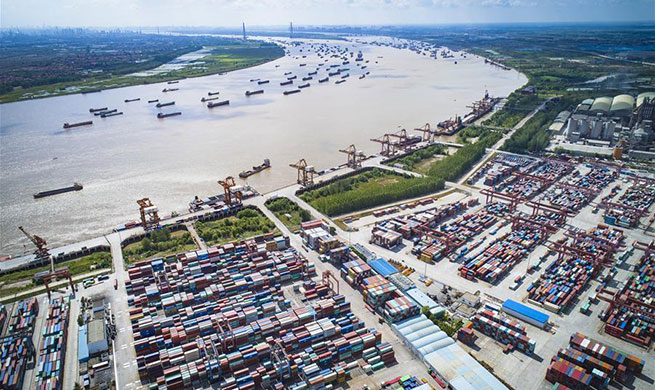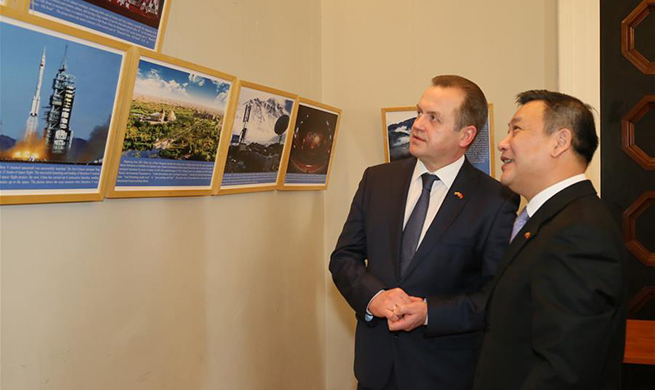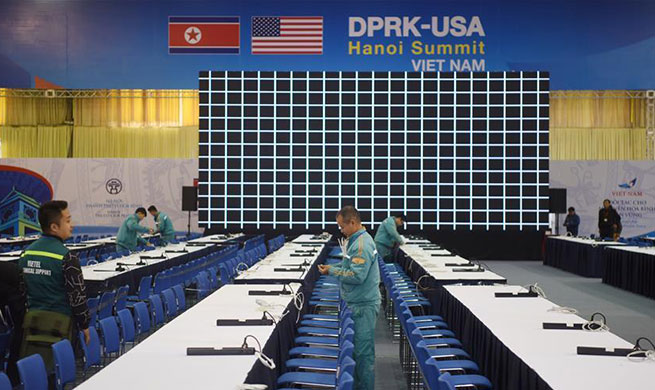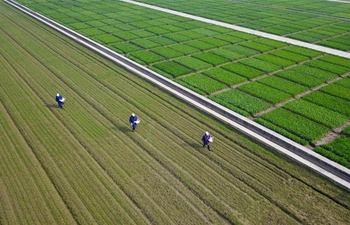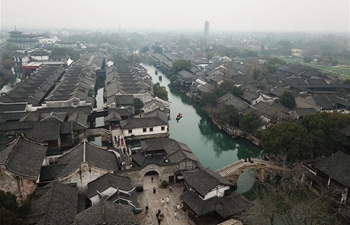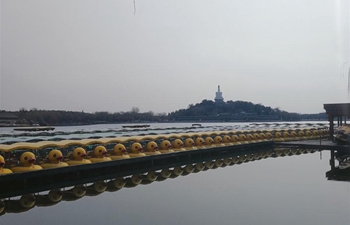GENEVA, Feb. 26 (Xinhua) -- The World Health Organization (WHO) warned Tuesday that the response action to the ongoing Ebola outbreak in the Democratic Republic of the Congo (DR Congo) may face the risk of slowdown due to insufficient funding.
WHO Director-General Tedros Adhanom Ghebreyesus called on donors on Tuesday to continue funding the response to the Ebola outbreak in the DR Congo or risk backsliding, as out of an urgent need for 148 million U.S. dollars for all partners involved in the response to continue their work, under 10 million dollars has been pledged so far.
"The situation is unprecedented: there has never been an Ebola outbreak in these conditions, with such a highly mobile population and with many gaps in the health system," said the WHO chief.
"Together with partners and with the Democratic Republic of the Congo government in the lead, we have made major gains. Hundreds of deaths have been averted, maybe even thousands. But the outbreak is not over and we urgently need additional funding to see it through."
According to latest WHO statistics, over 80,000 people in DR Congo have been vaccinated and over 400 have received treatment. Thousands of suspect cases have been monitored, tested and transferred to other centers. More than 40,000 contacts have been identified and reached daily for three weeks each to ensure they did not fall sick as well.
To make that happen, hundreds of health workers, border officers and other responders in neighboring countries have been trained and prepared for a responding to a potential case. The WHO alone has shipped over 300 metric tons of supplies, including vaccination supplies and 470,000 sets of personal protective equipment for partners running treatment centers.
The latest response plan for the period February to July is expected to bring together the planned actions and funding needs of all partners. It anchors the response in local health system structures, strengthening the capacities of local responders, especially at provincial and local levels and deepening the involvement of local communities, especially women's groups and survivors.
"We now need them to join us in the final push. No country or partner can face this deadly virus alone. The impact on public health and the economic ramifications can expand far beyond one country or continent," said the WHO head, who vowed not to "relent until we've stopped this outbreak."




